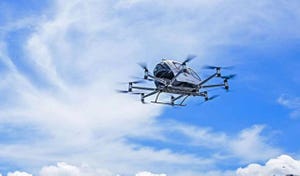Self-Driving Safety Standards Sought for Industry
Silicon Valley firm commits to extensive safety audit before rolling out freight-only trucks at scale

Self-driving company Gatik has announced it is embracing new safety procedures it hopes will become a standard for the entire autonomous vehicle (AV) industry.
The Silicon Valley-based firm, which has led the way in autonomous middle-mile logistics, has committed to an extensive safety audit before rolling out its ‘freight-only’ trucks at scale on U.S. roads. Freight-only means the vehicles would be fully driverless, with no human on board.
The “thorough evaluation” would be carried out by Edge Case Research, a Pittsburgh-based specialist in autonomous driving systems, and TÜV SÜD, the German organization recognized for its testing and certification of roadworthy vehicles.
Edge Case Research has already dedicated resources to implement its DevSafeOps process across Gatik’s system development, testing and safety engineering, while TÜV SÜD plans to assess the overall approach to deploying the tech.
Gatik CEO Gautam Narang said: “The validation of our safety case goes beyond a basic review of safety practices and mission statements. We are auditing our complete autonomous ecosystem to ensure safety in the real world, not just on paper. Our goal is to create safer roads for everyone.”
He challenged the rest of the AV industry to follow suit. “We’re taking the bold step of mandating an external audit of our safety case to not only hold ourselves accountable, but to help establish a standard for the entire industry,” he said. “Now, we encourage our industry peers to adopt this framework.”
For more self-driving vehicle and other embedded tech news subscribe to our free newsletter
Specifically, the audit would require completion of more than 700 safety portfolios, addressing five key pillars of safety: organizational safety culture, engineering quality, cyber security, vehicle security and conformity to the UL4600 standard for AVs.
That companies need to be as transparent as possible to reassure the public on the safety of driverless vehicles is not in doubt, as an American Automobile Association poll published earlier this year revealed that no fewer than 66% of respondents actively feared AVs.
News of the Gatik initiative comes at a particularly sensitive time for AVs, with self-driving taxi company Cruise having just been fined $1.5 million by the National Highway Traffic Safety Administration for submitting “incomplete reports” about an accident that one of its cabs was involved in, prompting NHTSA deputy administrator Sophie Shulman to say: “It is vitally important for companies developing automated driving systems to prioritize safety and transparency from the start.”
Gatik has made significant headway using autonomous Class 3 to 7 trucks – light to medium duty vehicles – to travel between distribution centers and stores in Texas, Arkansas and Ontario, Canada. It recently agreed to a deal with commercial vehicle giant Isuzu to mass produce self-driving trucks.
About the Author
You May Also Like







.jpg?width=300&auto=webp&quality=80&disable=upscale)
